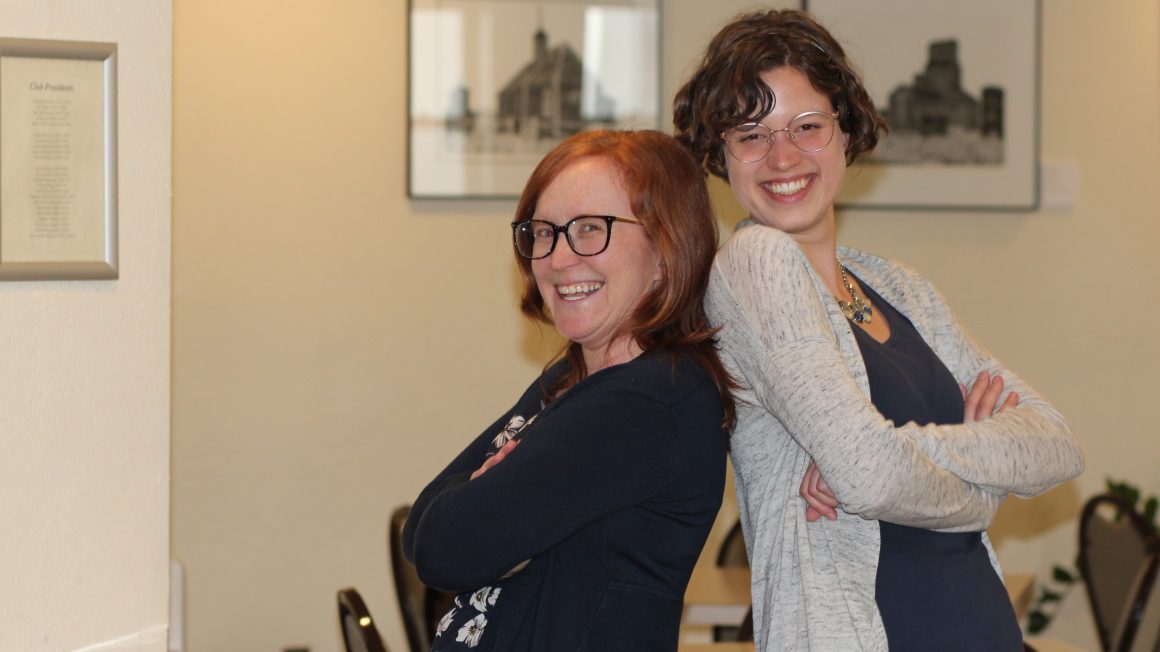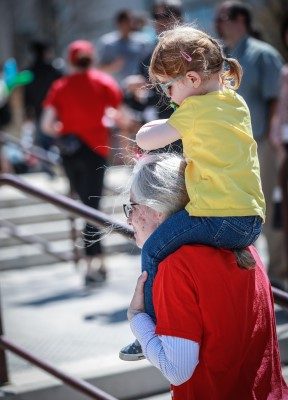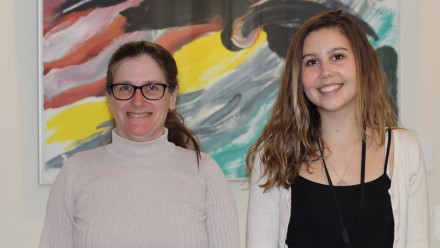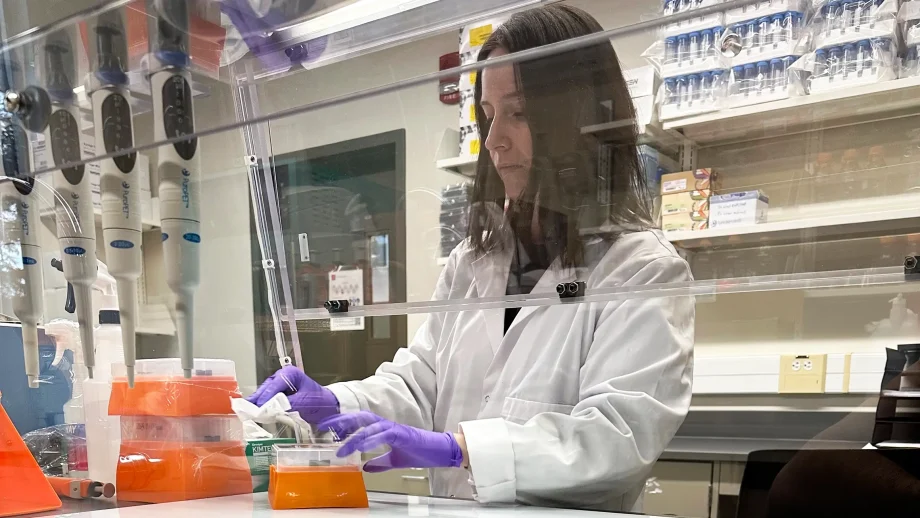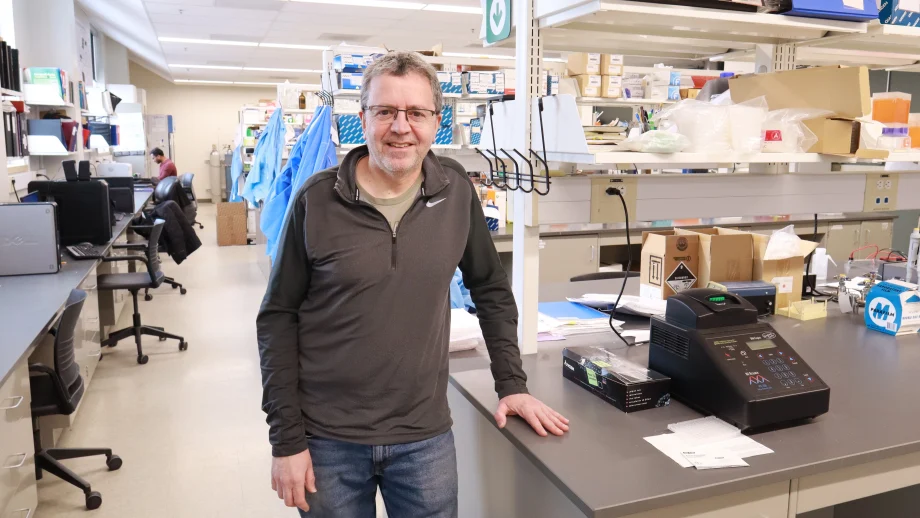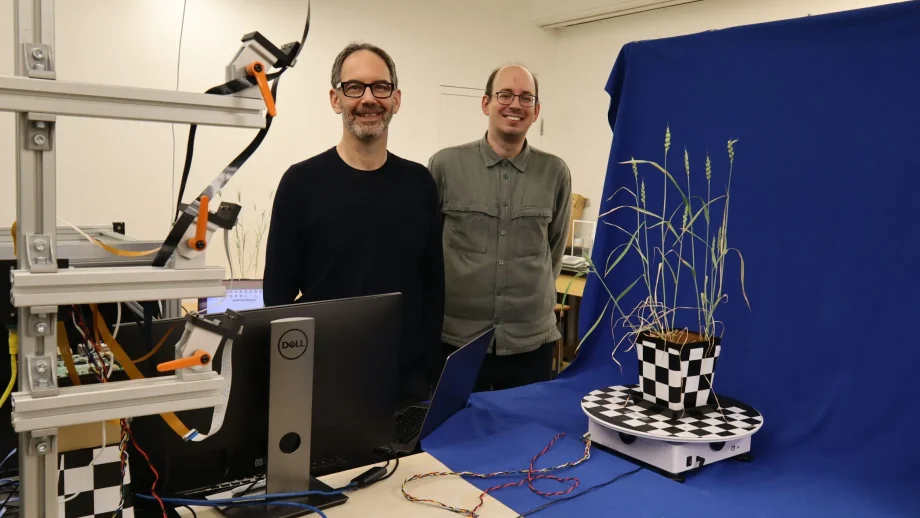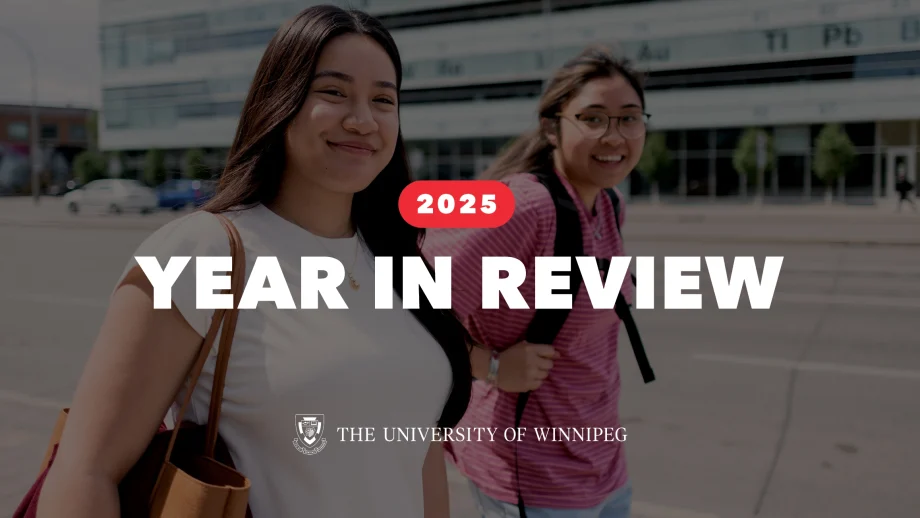In celebration of International Day of Women and Girls in Science on February 11, The University of Winnipeg is proud of the work being done locally and globally to empower women to pursue STEM education and careers.
I have been really fortunate to have many excellent mentors throughout my career
Dr. Nora Casson
You don’t have to look far to find great stories celebrating the power of mentorship.
For example, UWinnipeg’s Pathways to Graduate Studies program launched in 2019 to create space for Indigenous students to gain experience in a research environment, build a network with other science students, and learn about supports to prepare for upper-level science courses. The students who participated in this program say that the guidance and support they received had a huge impact.
Here are a few of the inspiring women in science that provided mentorship through this program:
Dr. Nora Casson, Department of Geography
When Dr. Nora Casson worked with Métis student Hannah Tuckett in 2019, she was thrilled to see how well Tuckett read and analyzed literature related to her project.
“It was well above the level I’ve seen of other students at her stage, and demonstrates the great potential she has to continue in scientific research,” said Casson.
The P2GS program confirmed Tuckett’s desire to pursue graduate studies in biology after she completes her undergrad in biology and education.
“I was inspired by the faculty, students, and researchers. Their passion, for their work and the research that they do, really showed,” she said.
Dr. Nora Casson is UWinnipeg’s Canada Research Chair in Environmental Influences on Water Quality, co-director of UWinnipeg’s Prairie Climate Centre, and an associate professor in the Department of Geography. Her research expands our understanding of how human activities impact boreal ecosystems, and informs decisions to protect ecosystems and water quality.
“I have been really fortunate to have many excellent mentors throughout my career, who demonstrated not only how to be a good scientist, but also how to balance your work with other parts of your life,” said Casson.
Dr. Tabitha Wood, Department of Chemistry
Third-year biochemistry student Sarah Baxter spent summer 2020 working with Dr. Tabitha Wood to examine a series of organic molecules, comparing their Ka values against each other.
Originally, she planned to use her degree to apply for medical school and eventually become a doctor. However, Wood showed her that the value of scientific knowledge was not just limited to practicing medicine, but was limitless.
“Dr. Tabitha Wood really showed me there’s more ways to contribute to science besides being a doctor,” Baxter said. “I think creating a drug that would help millions of patients would be more impactful.”
Wood’s expertise is in synthetic organic methodology. Her research program centers upon aryl migration rearrangement reactions and the use of biotransformations to achieve interesting small organic molecules. She lectures in the areas of organic chemistry, biochemistry, and medicinal chemistry. She is committed to public chemistry outreach, scientific literacy, and achieving equity in chemistry, and has been a long-time volunteer with Science Rendezvous.
“It is so important to instill a love of science early,” said Wood. “I have been involved in science outreach for many years and I want my daughter – and all young girls – to grow up knowing that a STEM career is an exciting way to not only understand how our world works, but to help shape it.”
Dr. Melanie Martin, Department of Physics
Sidney Leggett discovered her passion, and aptitude, for research while working with Dr. Melanie Martin in the Pathways to Graduate Studies mentorship program in 2019.
The experience led to her acceptance in an astrophysics summer internship at Queen’s University and grew her confidence as a researcher. She is now working toward a physics honours thesis under the supervision of Dr. Blair Jamieson.
“I am overjoyed to see the amazing progress Sidney has made in research, and the confidence she has gained,” said Martin. “I knew when I first met her she was destined for great things and through her thesis work she is proving me right!”
Leggett says she never would have applied to the astrophysics summer internship if it wasn’t for the encouragement she received from Martin and fellow student and mentor Melissa Anderson.
“The mentorship I received from Dr. Melanie Martin and Melissa Anderson completely changed my perspective on University and my place in it,” said Leggett. “I was previously very timid and found it easy to doubt myself, but this experience gave me the confidence I needed to make new connections and push myself harder.”
Anderson, who recently graduated from UWinnipeg, says that helping other students succeed is important to her, because the life changing opportunities she’s been given at UWinnipeg have had a huge impact on her future and she wants to pay that forward.
Martin’s research specialty is the development of non-invasive magnetic resonance imaging (MRI) methods to diagnose and understand central nervous system diseases. Most recently, she developed an MRI technique with the highest resolution to date. She serves on many international and national society committees. She has also served on grant selection committees for numerous international, national, provincial and local agencies.
Students interested in taking part in UWinnipeg’s Pathway to Graduate Studies (P2GS) program, tentatively scheduled May 3 – 28, 2021, should contact Dylan Jones at d.jones@uwinnipeg.ca by March 5 for more information.
The Canadian Association of Girls in Science says that women make up only 23 per cent of science and technology workers and less than 4 per cent of trades workers in Canada, and according to the United nations, less than 30 per cent of researchers worldwide are women.
Thanks to the commitment of inspiring scientists like Casson, Martin, and Wood, an increasing number of women and girls are being empowered to pursue careers in science and technology.
International Day of Women and Girls in Science takes place every year on February 11. Join the conversation by following the hashtags #WomeninScienceDay, #GirlsNeedRoleModels, and #WomenInSTEM.

